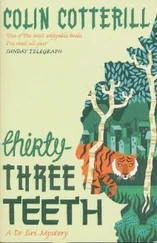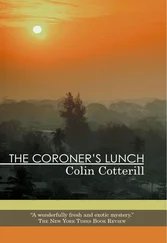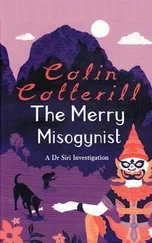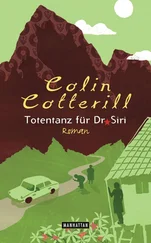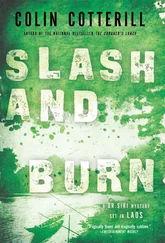Colin Cotterill - Killed at the Whim of a Hat
Здесь есть возможность читать онлайн «Colin Cotterill - Killed at the Whim of a Hat» весь текст электронной книги совершенно бесплатно (целиком полную версию без сокращений). В некоторых случаях можно слушать аудио, скачать через торрент в формате fb2 и присутствует краткое содержание. Жанр: Криминальный детектив, на английском языке. Описание произведения, (предисловие) а так же отзывы посетителей доступны на портале библиотеки ЛибКат.
- Название:Killed at the Whim of a Hat
- Автор:
- Жанр:
- Год:неизвестен
- ISBN:нет данных
- Рейтинг книги:4 / 5. Голосов: 1
-
Избранное:Добавить в избранное
- Отзывы:
-
Ваша оценка:
- 80
- 1
- 2
- 3
- 4
- 5
Killed at the Whim of a Hat: краткое содержание, описание и аннотация
Предлагаем к чтению аннотацию, описание, краткое содержание или предисловие (зависит от того, что написал сам автор книги «Killed at the Whim of a Hat»). Если вы не нашли необходимую информацию о книге — напишите в комментариях, мы постараемся отыскать её.
Killed at the Whim of a Hat — читать онлайн бесплатно полную книгу (весь текст) целиком
Ниже представлен текст книги, разбитый по страницам. Система сохранения места последней прочитанной страницы, позволяет с удобством читать онлайн бесплатно книгу «Killed at the Whim of a Hat», без необходимости каждый раз заново искать на чём Вы остановились. Поставьте закладку, и сможете в любой момент перейти на страницу, на которой закончили чтение.
Интервал:
Закладка:
I wasn’t so sure, but I was relieved to see he’d made it out of the toilet.
“So you’d be here on some type of update, I’d imagine.” Sergeant Phoom was a man who liked to talk. “We ran out and got some Pepsi when we heard you were coming. Hope you’re thirsty. We weren’t sure what you liked so we got Coke, too. Never can be too careful. Diet Coke, I think it is, just in case you’re on one. But I can see you have no need to be.”
In all my years in Chiang Mai police stations I’d never been welcomed so warmly as a member of the press. The sergeant offered to take me up to the briefing room but he looked uneasy about leaving the desk unattended so I told him I’d find it. Most stations have a standard, unimaginative floor plan: open reception downstairs with bus station seats in front of the desk, interview rooms leading off to the right and the left, fines paid to a cashier behind reception, offices upstairs, briefing room at the end, couple of small cells out the back. It was one more example of the lack of individuality that typified Thai policing, in my mind. Where was the splash of color, the gay idiosyncrasy? The answer to that question I found at the end of the hall.
The sign, BREIFING ROOM, over the door was so small you’d hardly notice the spelling mistake. The door was open and inside the room sat Constable Ma Yai and another officer with the stripes of a police lieutenant but the mannerisms of a fairy. He stood and clapped his hands delicately.
“Our angel has arrived,” he said.
I’d met gay policemen before. When Sissi was in her prime as a cabaret star she introduced me to a lot of her boyfriends. She had a thing for uniforms. She’d started with postmen, then worked her way up through the police ranks until reaching her ultimate high: an air force fighter pilot called Bin. But, excluding the postal workers, I’d never met a man in uniform who didn’t overcompensate on the side of male testosterone when he was on the job. This officer put up no such pretense. He introduced himself as Police Lieutenant Chompu and gave me a deep wai just short of a curtsy. I loved him instantly. I had no idea how Lieutenant Chompu had passed his medical and his oral exam and why he still remained active in a police force that rejected applicants for the most insignificant reasons, but at that moment I could only smile with admiration at a man clearly unembarrassed by his femininity. His posh central-Thai accent suggested to me that Chompu was at the end of the line, shunted further and further away from mainline stations until he could regress no further. Here he was at the Pak Nam siding with nowhere to go.
We exchanged pleasantries and funny comments and sat down at the large Formica-topped table where upturned glasses, bottled water, small cellophane-covered packets of sweets, jumbo Pepsis and Cokes, and an island of artificial poinsettias waited for our meeting.
“Constable Yai is our briefing person,” said Chompu. “He has a super speaking voice. Our lady typist almost melts when she hears it. So gravelly.”
The constable blushed but he seemed to enjoy the compliment. He had a rather undernourished file in front of him. In fact, when he opened it, there appeared to be just the two sheets of paper inside.
“You have to realize,” he said, “that once the case is taken up by any of the central police agencies like the CSD’s Archive Registry in Bangkok, they aren’t obliged to keep us abreast of their ongoing investigations. What we have here is the result of our own inquiries and bits we’ve picked up locally, word of mouth, so to speak.”
I knew the Archive Registry. It was the elephant graveyard where old cases went to die. I’d done a piece on them for the Mail . Went down to Bangkok on the train and met up with the director. When any evidence of historical malfeasance came to light, they’d read the file and do a cursory cross-check through their computer banks. Unless a flag went up that it was connected to any ongoing inquiry, they’d bury it in an indexed grave and go on to the next. Don’t forget, they can’t even get the ongoing cases right. Who was going to care about thirty-year-old skeletons? The medusa had decided to trash that CSD piece, by the way, because it presented the police in a poor light. I didn’t bother to point out that most police lights were dim anyway.
I knew the two sheets that Constable Ma Yai held in front of him were all we’d have to go on.
“First,” he said, “the vehicle. Nothing.”
“Nothing?” said I.
“The registration plate is from 1972. The Surat motor registry department didn’t start to computerize their records until ninety-four. Everything before that was on card.”
“Doesn’t he speak well?” said Chompu. “Wasted. Wasted as a constable. He should be on the radio.”
I had to smile. I’d grown up with such out-of-order asides. I missed them.
“Where are the cards?” I asked.
“Well, you have to look at it like this. We’re in the south. Those cards have been through, what? Thirty monsoon seasons? Stuffed in sweaty old rusting file cabinets.”
“They’re destroyed?”
“Not by man, I’d say. By nature itself. Those that are still legible might be stored somewhere in boxes, but I’m not even sure where you’d look.”
“The Surat motor registry department didn’t know?”
“Said all their surviving card files were sent to Bangkok ten years ago.”
“I suppose it’s possible some poor little secretary’s there copying old registration records onto a database,” said Chompu. “They probably pay her a pittance and treat her badly. Whip her, I shouldn’t wonder.”
I suppose I shouldn’t have been surprised. There was a Stephen King short story about the edge of time where the past just crumbled away one step behind you. In Thailand, everything before computerization had joined the rot. There wasn’t a great deal of motivation to go wading back through all that musty, mildewed smelly paper. Anew. Afresh. Forget the mistakes of the past and let’s start making our brand-new mistakes for the future. But where did that leave us and our VW?
“Do you have the engine and chassis numbers?” I asked.
The two policemen exchanged a condescending look of admiration. You learned to live with it. Yai copied the two numbers from his sheet and handed the slip of paper to me.
“Have you contacted VW Thailand?” I asked.
“They’re in Bangkok,” said the constable, as if that were reason enough not to try. Long-distance phone calls. Funny accents. Reports to fill out. Hassle. They might as well have been contacting Rio de Janeiro. I told them I’d see if I could get through.
“And that brings us to the bodies,” said the constable, flipping to his second sheet. “As there were no organs to examine, no flesh, no brain matter or stomach contents, the army pathologist in Prajuab could only say with any certainty that these were one male and one female. He wasn’t even sure how old they were. There were no visible traumas and, therefore, there was no obvious cause of death. But the head of the national forensic pathology institute is due down there in a few days and she might have a look.” He closed the file.
“That’s it?” I asked.
“Don’t you think it’s fascinating that they can tell the difference between male and female just from the bones?” Lieutenant Chompu said. “And they weren’t even connected.”
“You don’t watch a lot of television, do you?” I suggested.
“Lots. Why?” he replied. “How would that help?”
Right. The countryside. All Thai soap operas and game shows. Deprived of those rich satellite helpings of crime scene investigations. These people didn’t realize you could tell a man’s age, nationality, religion, belt size and sexual orientation from the bar of soap he washed with that morning. We had two complete skeletons and we couldn’t tell squat. Where was Kathy Reichs when you needed her?
Читать дальшеИнтервал:
Закладка:
Похожие книги на «Killed at the Whim of a Hat»
Представляем Вашему вниманию похожие книги на «Killed at the Whim of a Hat» списком для выбора. Мы отобрали схожую по названию и смыслу литературу в надежде предоставить читателям больше вариантов отыскать новые, интересные, ещё непрочитанные произведения.
Обсуждение, отзывы о книге «Killed at the Whim of a Hat» и просто собственные мнения читателей. Оставьте ваши комментарии, напишите, что Вы думаете о произведении, его смысле или главных героях. Укажите что конкретно понравилось, а что нет, и почему Вы так считаете.


